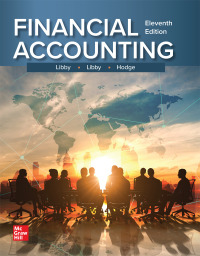Netherlands-based Royal Ahold ranked among the worlds three largest food retailers. In the United States it operated
Question:
Netherlands-based Royal Ahold ranked among the world’s three largest food retailers. In the United States it operated the Stop & Shop and Giant supermarket chains. Its subsidiary, U.S. Foodservice, Inc. (“USF”) was a leading food distributor for commercial customers. The U.S. Justice Department and Securities and Exchange Commission and its Dutch counterparts brought criminal and civil charges against the company and executives from both the Dutch parent company and its U.S. subsidiary for overstating earnings by more than $1 billion. U.S. officials also brought charges against representatives of USF’s suppliers who provided outside auditors with fraudulent audit confirmations aimed at supporting the fictitious numbers. The U.S. Attorney’s Office for the Southern District of New York described the U.S.-based part of the accounting fraud as follows: Between 2000 and early 2003, USF was one of the United States’ leading distributors of food and related products, supplying customers including restaurants and cafeterias. USF typically purchased the products it resold from a variety of suppliers at full price. However, the suppliers often refunded a portion of the purchase price to USF in the form of negotiated rebates, known as “promotional allowances.” Promotional allowances reduced USF’s cost of sales and thereby increased the company’s earnings. During this time period, Kaiser and others falsely inflated USF’s earnings by causing USF to record hundreds of millions of dollars in fictitious promotional allowances that had not been earned. Press Release from the U.S. Attorney’s Office Southern District of New York, December 7, 2011.
Required:
Using news reports and press releases from relevant regulators and prosecutors (a Google search for “Ahold Accounting Fraud” will uncover many documents), answer the following questions.
1. Whom did the courts and regulatory authorities hold responsible for the misstated financial statements?
2. Did the company cooperate with investigations into the fraud? How did this affect the penalties imposed against the company?
3. How might executive compensation plans that tied bonuses to accounting earnings have motivated unethical conduct in this case?
Step by Step Answer:

Financial Accounting
ISBN: 9781264229734
11th Edition
Authors: Robert Libby, Patricia Libby, Frank Hodge





